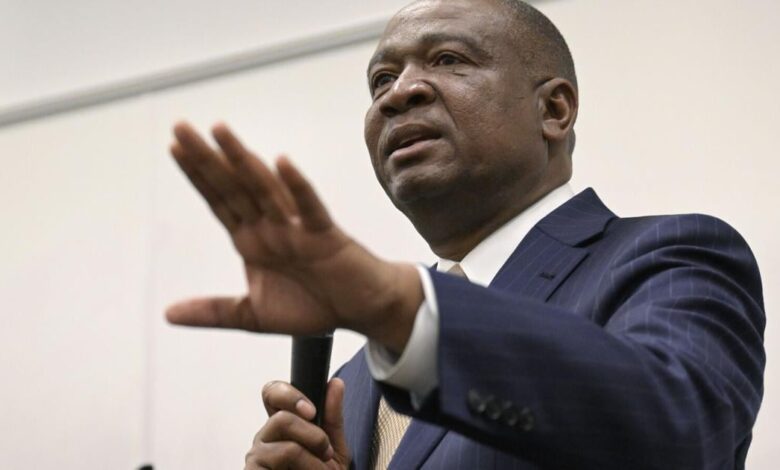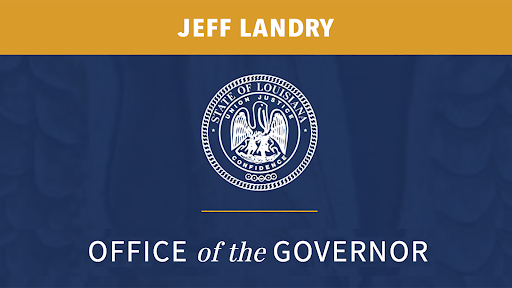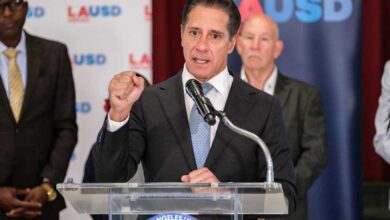Congressman wants to know why Louisiana student visas pulled | Education

A Louisiana congressman is demanding that the Trump administration explain why it recently revoked the visas of several international students at Southern University.
In a letter Tuesday to federal officials, U.S. Rep. Cleo Fields, D-Baton Rouge, called for “an immediate review and explanation” of the visa terminations at Southern, a historically Black university in Baton Rouge. The international students at Southern were among more than a dozen at universities across Louisiana whose visas were revoked in recent weeks without explanation as part of the Trump administration’s targeting of foreign-born students studying in the U.S.
In his letter to Secretary of State Marco Rubio, Homeland Security Director Kristi Noem and Immigration and Customs Enforcement Acting Director Todd Lyons, Fields demanded a “transparent explanation” for the revocations, including any alleged violations by the students that prompted the actions. He also called on the federal agencies to consider reinstating the students’ visas “pending a full investigation,” and to ensure that all actions by immigration authorities follow due process.
“The sudden termination of these students’ legal status without clear justification not only threatens their academic careers but also undermines our nation’s reputation as a welcoming place for global scholarship,” Fields said in a statement. “Such decisions demand immediate review and full transparency.”
He asked federal immigration officials to take action, saying that international students “deserve fair treatment consistent with our American values.”
Shrubbery spells out ‘SOUTHERN,’ with A.W. Mumford football stadium in background, at entrance to campus, Wed., Nov. 16, 2017.
Fields’ letter states that eight international students at Southern had their visas revoked, but a university spokesperson said that, as of last week, the number of impacted students at the Baton Rouge campus was seven. In addition, two students at Southern University’s New Orleans campus also had their visas revoked, officials said.
Southern spokesperson Janene Tate said in an interview last week that the school was not given a reason for the revocations and declined to offer additional information, citing federal student-privacy laws.
Including Southern, more than a dozen international students statewide have had their visas revoked in recent weeks, leaving them vulnerable to detention and deportation. They include at least two students at Tulane University, three at the University of New Orleans, and three at the University of Louisiana at Lafayette.
A spokesperson for the U.S. office of Immigration and Customs Enforcement said in an email that the department does not issue or revoke visas. Representatives for Rubio and Noem did not respond to requests for comment.
International students nationwide have been increasingly targeted by President Donald Trump’s efforts to clamp down on immigration, which recently expanded to include non-citizens who are residing in the country legally.
In many cases, students with F-1 or J-1 visas, which allow them to study at American universities, have been singled out for expressing pro-Palestinian views or participating in campus protests. It’s not clear whether any of the Louisiana students were targeted for participating in protests.
Earlier this month, Rubio ordered overseas diplomats to comb through the social media accounts of student visa applicants to bar those suspected of being critical of the U.S. or Israel from entering the country, the New York Times reported. Since he became Secretary of State in January, Rubio has reported revoking at least 300 visas.
“If we knew this information about them before we gave them a visa, would we have allowed them in?” he said. “If the answer is no, then we revoke the visa.”
As of April 21, at least 1,500 students from nearly 250 colleges and universities nationwide have had their visas suddenly revoked in recent weeks, according to an analysis by Inside Higher Ed, a news outlet that covers higher education. The reason behind many of those revocations remains unknown.



